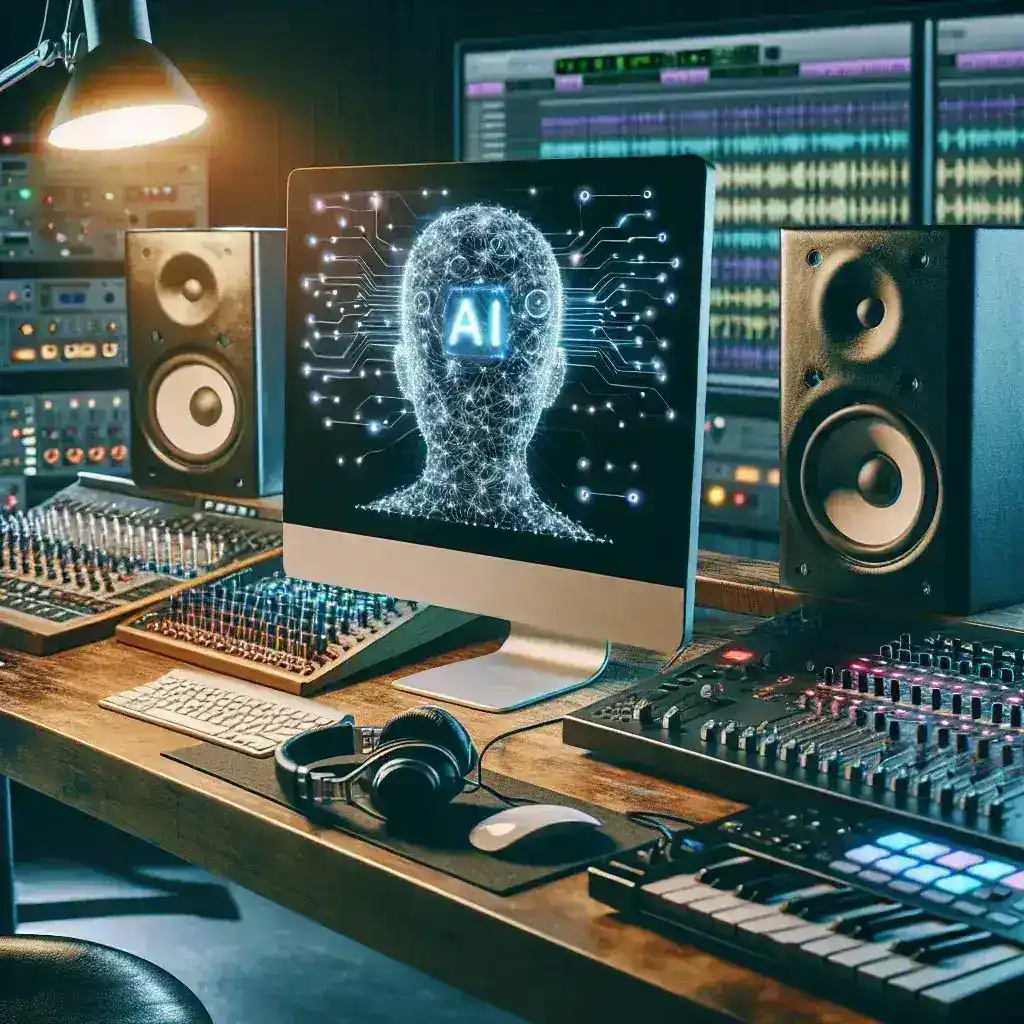Introduction
In the ever-evolving landscape of digital audio workstations (DAWs), Reaper has consistently stood out as a powerful tool for musicians, producers, and sound engineers alike. With its latest update, Reaper DAW has taken a significant leap forward by incorporating an AI-assisted session organizer, designed to streamline the music production process and enhance creative workflows. This article delves into the features, advantages, and future implications of this groundbreaking addition.
The Rise of AI in Music Production
The integration of artificial intelligence in music production is not merely a trend; it’s a paradigm shift. As the technology matures, AI has begun to influence various aspects of music creation, from composition to mastering. The introduction of AI-assisted tools allows for greater efficiency, enabling artists to focus more on creativity rather than administrative tasks.
Historical Context
Historically, music production has involved tedious organizational tasks. Before the advent of sophisticated DAWs, producers had to rely on physical tape and manual edits, leading to time-consuming processes. With the rise of digital technology, DAWs like Reaper emerged, offering improved flexibility and efficiency. However, even with these advancements, producers still encountered challenges in managing large sessions and multiple audio tracks — a gap that AI now seeks to fill.
What is the AI-Assisted Session Organizer?
The AI-assisted session organizer in Reaper DAW is a feature that intelligently categorizes and organizes audio and MIDI tracks, allowing users to navigate their sessions quickly and effortlessly. It employs algorithms that analyze the content within the session, recommending organization methods based on the types of tracks, their usage, and historical patterns.
Key Features
- Intelligent Track Grouping: Automatically groups tracks that are similar in nature, making it easier for users to locate related audio files.
- Color-Coded Sessions: The AI can provide color suggestions for different tracks, enhancing visual clarity without manual input.
- Template Recommendations: Users can receive suggestions for session templates based on past projects, optimizing setup time.
- Track Tagging: Automatically tags tracks based on their content, allowing for swift searches and organization.
Benefits of AI-Assisted Organization
The advantages of using an AI-assisted session organizer in Reaper DAW are manifold:
1. Increased Productivity
With the automated organization of tracks, producers can save valuable time, allowing them to concentrate on the creative aspects of music production. This means more time for brainstorming and less time spent on logistics.
2. Enhanced Collaboration
For collaborative projects, an organized session is crucial. The AI’s ability to categorize and standardize tracks makes it easier for multiple contributors to work on a single project without confusion.
3. Improved Workflow
An organized session leads to a smoother workflow. Producers spend less time searching for elements and can focus on the art of creating music. This is especially beneficial in larger projects where the number of tracks can be overwhelming.
4. Accessibility
New users and those with less experience can benefit from the AI’s recommendations, making Reaper DAW more accessible to a broader audience of musicians and producers.
Future Predictions
The introduction of AI-assisted tools in music production is just the beginning. As technology continues to evolve, we can expect even more innovative features from Reaper and other DAWs. Future developments might include:
- Advanced AI Composers: AI that helps sketch ideas for melodies, harmonies, or arrangements based on user preferences.
- Real-time Feedback: AI that provides real-time suggestions on mix quality or arrangement effectiveness.
- Machine Learning: Tools that learn from user habits and preferences over time, creating a truly personalized production environment.
Pros and Cons
As with any technological advancement, the integration of AI in music production brings both pros and cons:
Pros:
- Efficiency in organizing sessions
- Time savings for producers
- Ease of use for newcomers
- Enhanced collaboration opportunities
Cons:
- Potential over-reliance on technology
- Loss of personal touch in organization
- Learning curve for users unfamiliar with AI features
Real Examples of AI in Action
To illustrate the effectiveness of the AI-assisted session organizer, let’s consider a few real-world scenarios:
Scenario 1: The Indie Band
An indie band working on their debut album faced challenges in managing a large number of audio tracks. After implementing the AI-assisted session organizer, they found that they could categorize their tracks by instruments and song sections, leading to a more structured approach in their creative sessions.
Scenario 2: The Film Composer
A film composer tasked with creating a complex score for a movie utilized the AI to organize his session into thematic groups. This allowed him to navigate quickly between different sections of the score, saving precious time during the editing phase.
Cultural Relevance
The rise of AI in music production also speaks to a broader cultural shift towards automation and efficiency in various creative fields. As artists strive to produce more content in less time, the ability to harness AI tools will likely become a defining feature of modern music production.
Conclusion
The addition of the AI-assisted session organizer in Reaper DAW represents a significant advancement in music production technology. By streamlining the organizational aspects of creating music, it allows artists to focus on what truly matters: their creativity. As we look to the future, the potential for AI in music production is boundless, promising to revolutionize how we create, collaborate, and experience music.
Final Thoughts
As the music industry continues to evolve, embracing technologies like AI will be crucial for staying competitive. Reaper DAW’s commitment to innovation through the AI-assisted session organizer is a testament to its dedication to empowering musicians and enhancing the music-making experience.

